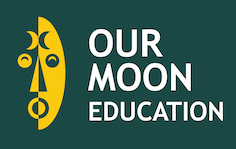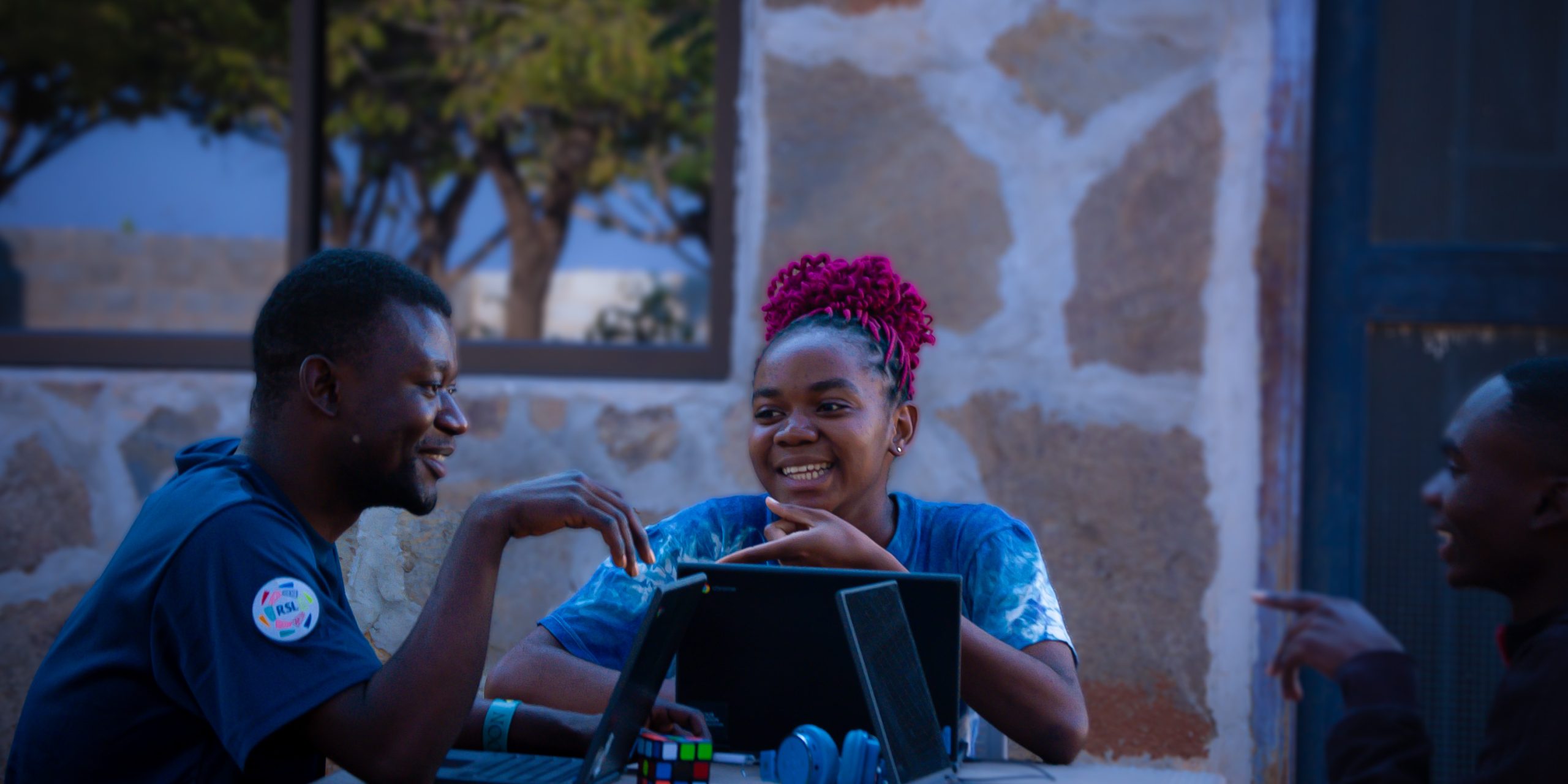In this blog, Ntasuwila talks to Malama and Helen about her role at Our Moon and what she loves about it.
How long have you been involved with Our Moon and in what capacity?
I’ve been involved with Our Moon since 2018. I initially started as a volunteer, helping out on a few different occasions and officially joined as an employee in 2019. I work as the Resources Manager and Tutor at the New Moon Children’s College. Resource managing involves making sure each division, e.g., the kitchen and the children’s college, have the resources they need for them to fully function (within our budget, which I also manage). I also work with Justin to plan the day-to-day schedules and projects, to ensure the smooth running of all on going work on site. This year for the first time, I shall be tutoring the students in SAT English on top of my other responsibilities.
Why do you like being involved with Our Moon?
As someone keen on self-improvement, I am always happy to affirm that people can achieve the positive change they would like to see in themselves, if they put their minds to it. The ability to improve yourself also means the ability to improve both your environment and the lives of people around you. I get to see students achieve that positive change here at Our Moon. One of my favorite quotes is by Alvin Toffler. He says, “The illiterate of the 21st century will not be those who cannot read and write, but those who cannot learn, unlearn, and relearn.” At Our Moon, we aim to teach our students and children how to learn, how to let go of their misconceptions and how to develop and evolve their thoughts through experiential learning.
At Our Moon, we aim to teach our students and children how to learn, how to let go of their misconceptions and how to develop and evolve their thoughts through experiential learning.
You have a degree from China in Agronomy; how have used your passion to develop the land?
One of the most challenging things about the land we settled on is that it was previously dug out for gravel to make roads. This means that all the good and fertile topsoil was completely dug out and all that was left was gravel. The land was mostly dry and deserted, with a few newly regenerated indigenous trees. Thankfully, during the digging, they tossed the topsoil into large piles that formed these little hills on the land. It has been an ongoing project moving the topsoil around for the gardens and moving the gravel to make paths and roads. Another of our main projects has been improving soil fertility through organic methods such as composting, to keep both the flower and vegetable gardens thriving. For compost, we make use of all organic waste produced in the kitchen and from the general weeding and pruning in the gardens. One of the most amazing things I have witnessed since we settled has been the improvement of biodiversity on the land. With all the gardens, tree planting and conservation of indigenous trees I have seen more birds, insects and even little mammals scampering around the land. Last year, we saw a lot of indigenous trees produce either fruits or flowers; we also saw a lot of wild berries and mushrooms spring up in the forest.
You worked with the students and children on a video at the end of last year. Can you tell us about it and why you are proud of its success?
The video is titled “For Life and Livingness sake” and it is a combination of songs and speeches. It was initially centered around our national Independence Day celebration but quickly evolved into the celebration of every single day we are blessed to have. The remarkable thing about the video is that everything was originally created by the students and the children, with just a little guidance from staff members. There wasn’t any pressure to display or perform because they created everything for their own amusement and understanding. Their messages were meant to be mantras and life lessons for them to hold on to for themselves; we will show it to our next group of students as I think they will find it very motivating.
What are you looking forward to with the next cohort of students
Having students on site is always intriguing because we get to witness each student’s transformation firsthand. The students we receive at every start of the school year, are not the same ones that leave us at the end of the program. We have seen students who take part in the garden volunteering activities go home and jump start gardens that help feed their families. I am looking forward to seeing the positive outcome that comes through their learning experience.
Your baby is 14 months old, tell us how that’s been for you and how he fits into Our Moon.
It has been quite an enlightening and uplifting journey. It has not been without its challenges but the challenges are the growing pains necessary for all of us to develop. I’m looking forward to navigating this world with him; we both have so much more to learn, from each other and through each other.
At the moment, Kalengamitambo is attending Our Moons Day care program. The day care – managed by Mrs. Lizzy Banda – has been a wonderful way for him to learn, explore and interact in a safe and peaceful environment.


